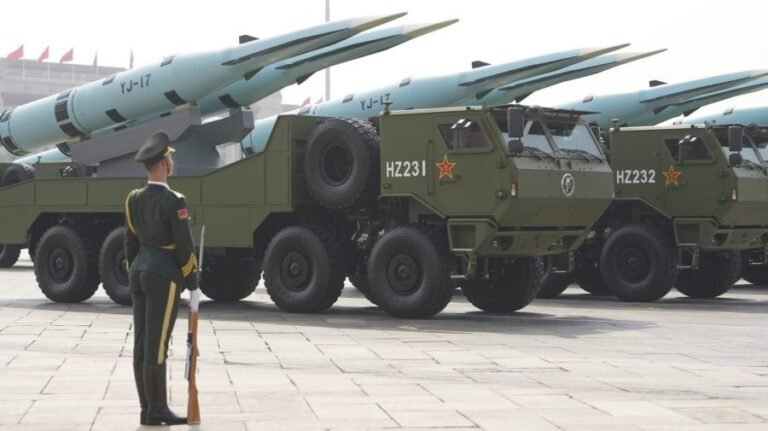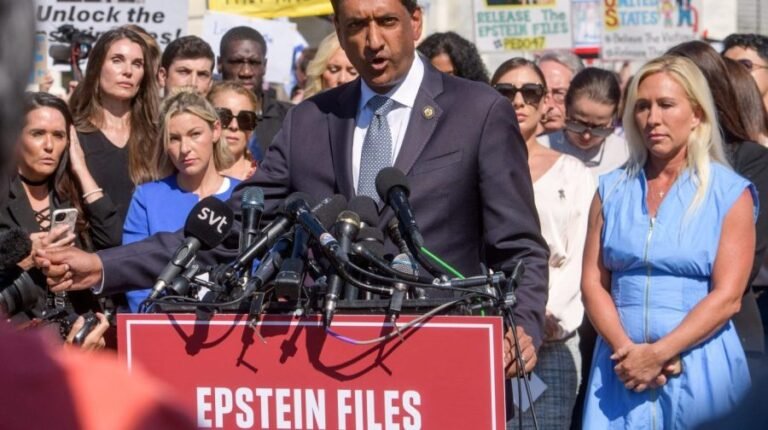
When President Trump announced 25 percent tariffs on goods from Canada and Mexico this month, and 10 percent on Chinese imports, a hue and cry went up from the business sectors most directly affected.
Consequently, the president backed off and paused for one month the imposition of the tariffs on automakers. He subsequently modified his order by exempting those goods protected under the North American trade agreement, but then added 250 percent tariffs on Canadian lumber and dairy products.
It did seem strange, with all the gyrations and controversies swirling over tariffs last week, that Congress remained largely silent on the sidelines, apparently content to let the president take the lead. Even though Congress has Article I authority under the Constitution to establish tariffs and regulate commerce with foreign nations, that authority seems to be vanishing.
How did this transfer of powers come about? It goes all the way back to the Great Depression of the 1930s. During the 1920s, the economy was humming along nicely under three successive Republican presidents: Warren G. Harding (1921-23); Calvin Coolidge (1923-29); and Herbert Hoover (1929-32). On June 17, 1930, President Hoover signed into law, the “Smoot-Hawley Tariff Act.” It was designed to protect American workers and farmers from foreign competition. It raised tariffs on over 20,000 goods from abroad.
Although the U.S. economy was still doing well initially, it soon went south as the world-wide Great Depression took hold, shuttering American banks and businesses, and sending unemployment skyrocketing.
America’s trading partners soon retaliated against the Smoot-Hawley tariffs by imposing reciprocal tariffs on imported U.S. goods. American imports and exports plummeted some 67 percent. Smoot-Hawley was not primarily responsible for the Great Depression, but most economic historians agree that it certainly exacerbated the downward economic spiral.
The act contributed to a popular revolt among the people, leading to the electoral defeats in 1932 of President Hoover, Sen. Reed Smoot (R-Utah) and Rep. Willis Hawley (R-Ore.), and a large contingent of Republicans in both houses. Democratic New York Gov. Franklin Delano Roosevelt handily beat Hoover and assumed the presidency along with large Democratic majorities in Congress.
FDR’s first 100 days were a whirlwind of economic activity in dealing with the banking, unemployment and trade crises, among other things. On trade, Roosevelt persuaded Congress to enact the reciprocal Trade Agreements Act of 1934, reducing tariff levels and promoting trade liberalization and cooperation with foreign governments. It would still be some time before the U.S. was able to emerge from the Great Depression, aided in large part by FDR’s innovative New Deal programs.
The Smoot-Hawley Tariff Act was history — the last attempt by Congress to assert primary control over setting tariff rates. FDR’s alternative was the first in a long line of executive trade agreements in which presidents assumed principal control over tariff policies under emergency authorities delegated by Congress. The agreements sought to stabilize the system and help avert divisive trade wars. Many have been multi-lateral, such as the World Trade Organization (WTO), the General Agreement on Trade and Tariffs and the North American Free Trade Agreement.
After the Smoot-Hawley tariff debacle of the early 1930s, Congress was understandably reluctant to get deeply involved in tariff decisions. To coin an adage: Picking up a hot skillet barehanded twice is dumb.
While the current Congress may not remember the details of Smoot-Hawley, its aftermath left a searing scar on the institution’s psyche. It surely contributed to Congress’s hands-off approach still apparent today. President Trump’s herky-jerky tariff actions have triggered a bumpy, roller coaster ride on Wall Street, further undermining confidence in the American economy both at home and abroad.
Some forecasters are warning of a recession on the horizon, a prospect the president did not dismiss out-of-hand last weekend. A Washington Post poll last week showed 40 percent of Americans approving Trump’s tariff hikes on our North American trading partners and 60 percent disapproving. The most common complaint aired by those responding to the poll is that Americans “don’t want to pay more for anything.”
The president conceded in his speech last week the tariff increases will cause, “a little disturbance,” but that “it won’t be much.” There is no doubt that increasing inflation, recession fears, tariff turbulence and the stock market’s reaction are a big part of public perceptions and Congress’s reticence to weigh-in. Tariffs are one hot potato Congress does not want to have a hand in juggling.
Don Wolfensberger is a 28-year congressional staff veteran culminating as chief-of-staff of the House Rules Committee in 1995. He is author of, “Congress and the People: Deliberative Democracy on Trial” (2000), and, “Changing Cultures in Congress: From Fair Play to Power Plays” (2018).

